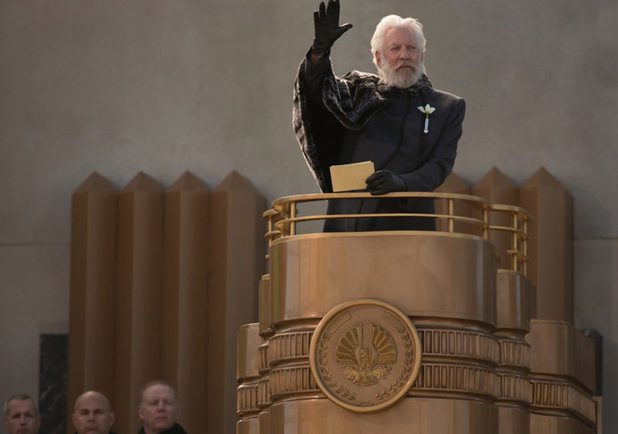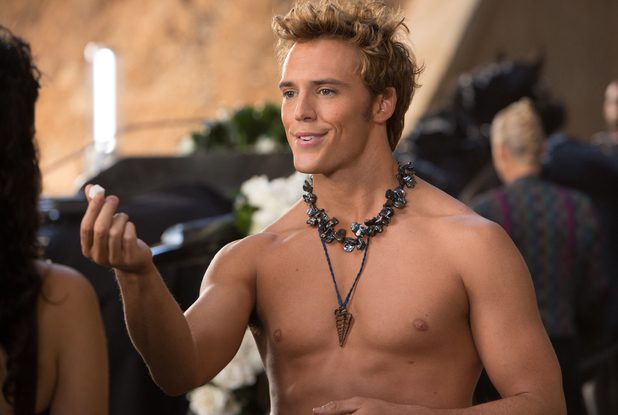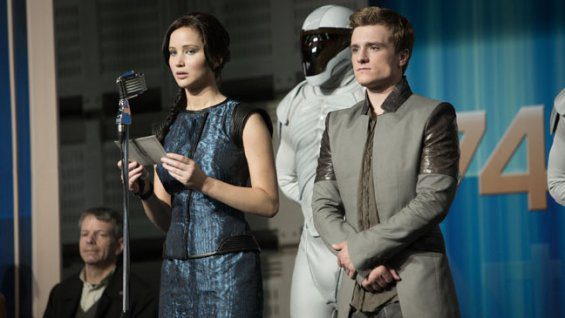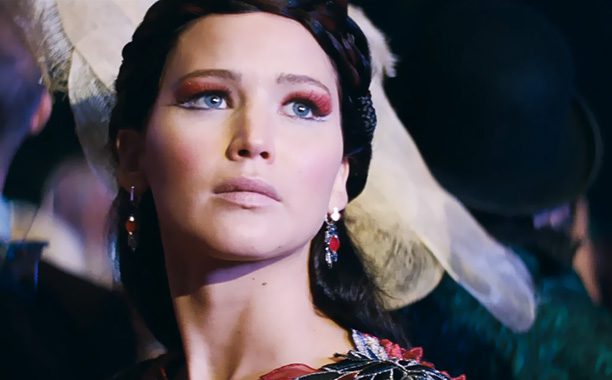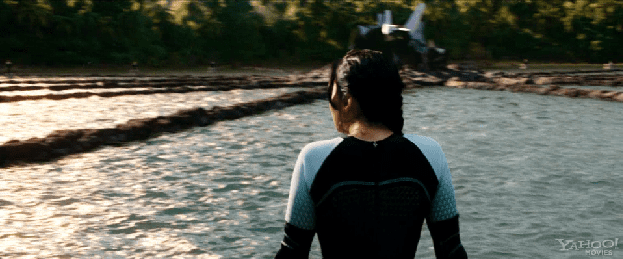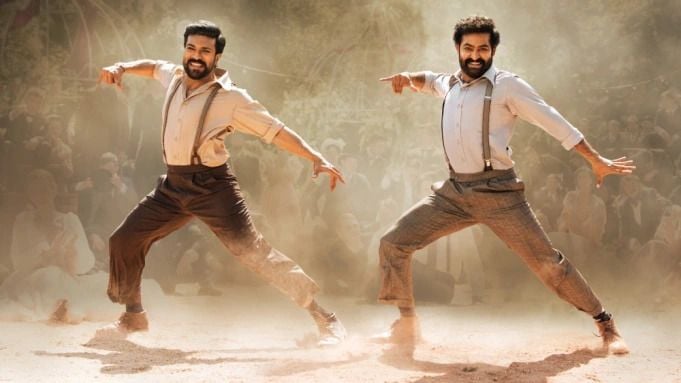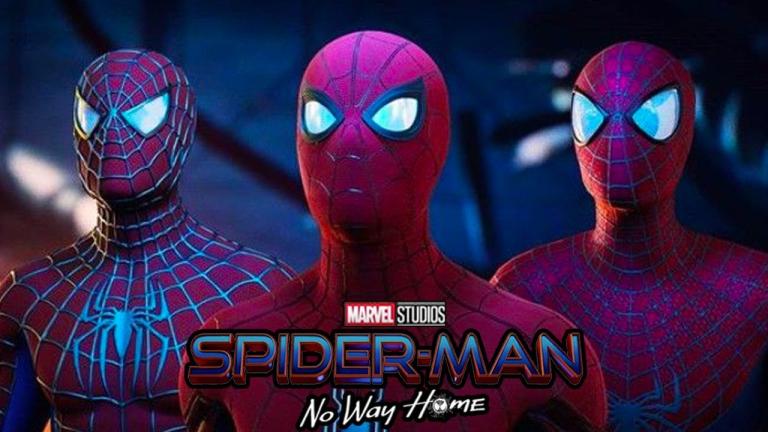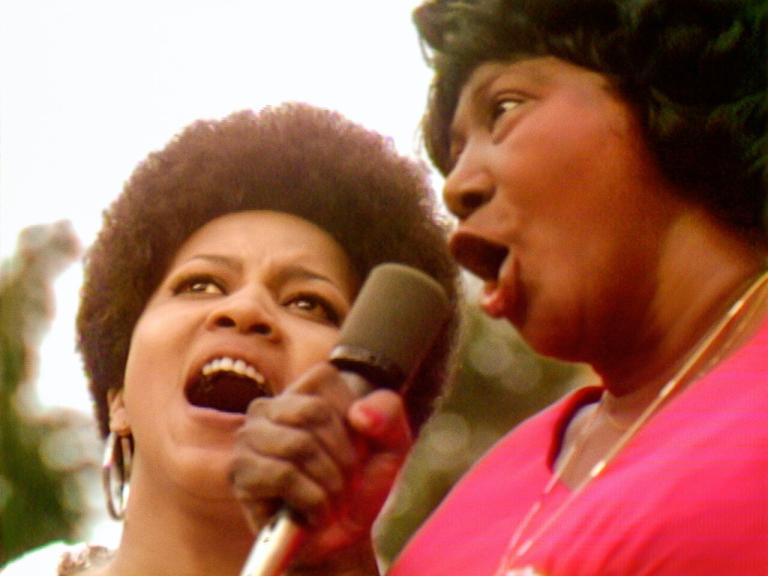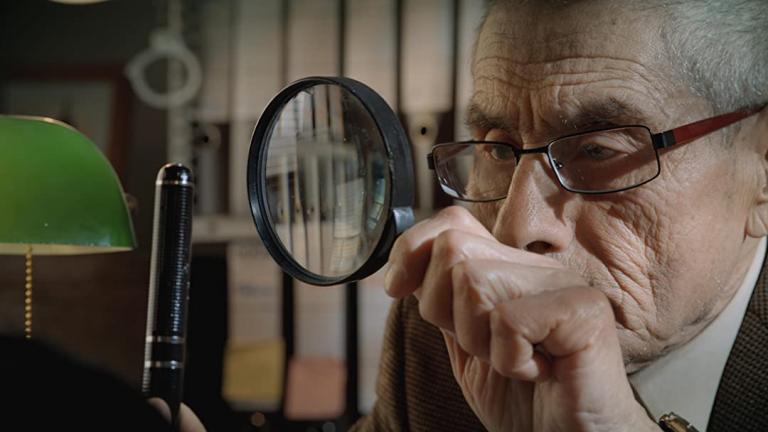The mostly rave reviews are rolling in. Advance ticket sales already make it another smash. Why bother critiquing such a pop cultural juggernaut? Because millions of impressionable teens will see The Hunger Games: Catching Fire at a time when they are developing their identities and exploring what bravery, courage, and responsibility look like. How might parents, teachers, and adolescents respond to the latest tale of Katniss Everdeen and the 75th Annual Hunger Games (The Quarter Quell!)? (Beware: semi-spoilers ahead–)
As a big, brassy spectacle, Catching Fire satisfies. It has a colorful cast, expert effects, and moments of near genuine emotion. As Katniss, Jennifer Lawrence continues to exude strength and intelligence amidst lesser actors like her competing love interests, the brawny Liam Hemsworth (as Gale) and the petite Josh Hutcherson (as Peeta). We still wonder what she sees in both of them.
Donald Sutherland brings additional menace to his reprise as President Snow. The addition of acclaimed performers like Philip Seymour Hoffman (as Plutarch Heavensbee!), Amanda Plummer (as Wiress), and Jeffrey Wright (as Beetee) adds more gravitas to the second installment of the franchise. The most intriguing new character is Finnick Odair, played by Sam Claflin. He manages to exude playboy, swashbuckler, and confidante (and would be a far more intriguing match for Katniss). The wasteful ways of Panem are even clearer thanks to the visual panache of director Francis Lawrence. Yet, I still wonder if the disturbing message and social critique inherent in Suzanne Collins’ source material is somehow lost in translation to the big screen.
By beginning Catching Fire in media res, in the wake of Katniss and Peeta’s victory, director Francis Lawrence (with Suzanne Collins’ cooperation) offers a chance to consider the human cost of The Hunger Games. We get hints of post-traumatic stress disorder in the survivors. Their victory tour to the Districts brings back heartbreaking memories of their fallen fellow contestants. The Capitol must send in soldiers (who resemble the Stormtroopers in Star Wars) to repress the resistance. Even a seemingly unflappable Panem insider like Effie starts to feel the cost of the made-for-television bloodbaths.
An air of seriousness hangs over the first third of the film. The reaping feels as unnerving and inhumane as it should. Will the audience simply see this as a bummer before the real action begins (rather than an important critique of the whole gaming/war enterprise?). The Hunger Games can seen as a critique to repressive governments everywhere (which may explain China’s initial hesitancy in allowing it into their country). Yet, it also could guarantee that the United States will never be able to institute a draft for soldiers amongst a generation raised on the books/movies. They may not even volunteer. The series could inspire pacifism or activism or just a hunger for more entertainment.
We are invited to see through the Capitol’s façade. Katniss and Peeta must stick to the script, playing for the crowds. Their role is made explicit—“Your job is to be a distraction.” This is the heart of Suzanne Collins’ satire of our reality shows and overly eager contestants. When the “Girl on Fire” enters Panem in her chariot, we see how “bread and circuses” serve as a convenient distraction for an oppressive empire. Catching Fire comes most alive when flamboyant talk show host Caesar Flickerman appears onscreen.
As Caesar, Stanley Tucci offers up a frightening laugh that pierces our conscience. He appears just as unnerved as the winners of the previous contests, forced back into service like “Celebrity Survivors.” Every deviation from the pre-approved script seems to endanger Caesar and his subjects. Catching Fire invites the audience to peer past the headlines, to see the humans suffering in the spotlight.
Will filmgoers appreciate the multiple layers of Hollywood’s latest sensation, Jennifer Lawrence playing a girl thrust into the spotlight, faced with the demands of the cameras, smiling on cue, yet hating every moment? The grace and character Lawrence continues to display under such industry pressure makes her even more of a role model than Katniss. She rises above the situation both onscreen and off.
Perhaps such verisimilitude isn’t necessary to enjoy Catching Fire, but if we don’t step that far back, then we fail to recognize the original point/social critique behind the project. And we miss the chance to affirm an emerging role model who can both captivate cameras and remind us how unimportant Hollywood’s games really are. We must resist the temptation to become Panem, to fall for the projection rather than the real people behind it.
The mechanics of the game itself are a bit lost amidst the introduction of so many new characters. While the Lionsgate marketing plan highlights key words such as “tick tock,” the riddle at the center of this edition of The Hunger Games doesn’t really drive the action. The challenges show up in seemingly random ways at random times that don’t necessarily intrigue. Perhaps we are so accustomed to the leveling in video games that we don’t expect an explanation and never bother to figure out the rules of a given game. Like Katniss and company, we’re forced to simply respond to survive.
The challenge offered up (even in the poster and trailer) is to “remember who the real enemy is.” The call of The Hunger Games is not to let mere entertainment distract us. We must not be lulled to sleep by hype and hoopla. And yet, The Hunger Games is being cross-promoted with new spicier sandwiches at Subway.
A spectacle is created to help us resist spectacle. A massive entertainment challenges us not to settle for media circuses. It can’t really afford to be as bloody or disorienting as teen soldiers packed off to real wars, so it settles for mocking our reality TV gears that grind up contestants and move on. But at least, this fractured mirror dares us to follow Katniss in looking closer and resisting the roles we’ve been pre-assigned.


